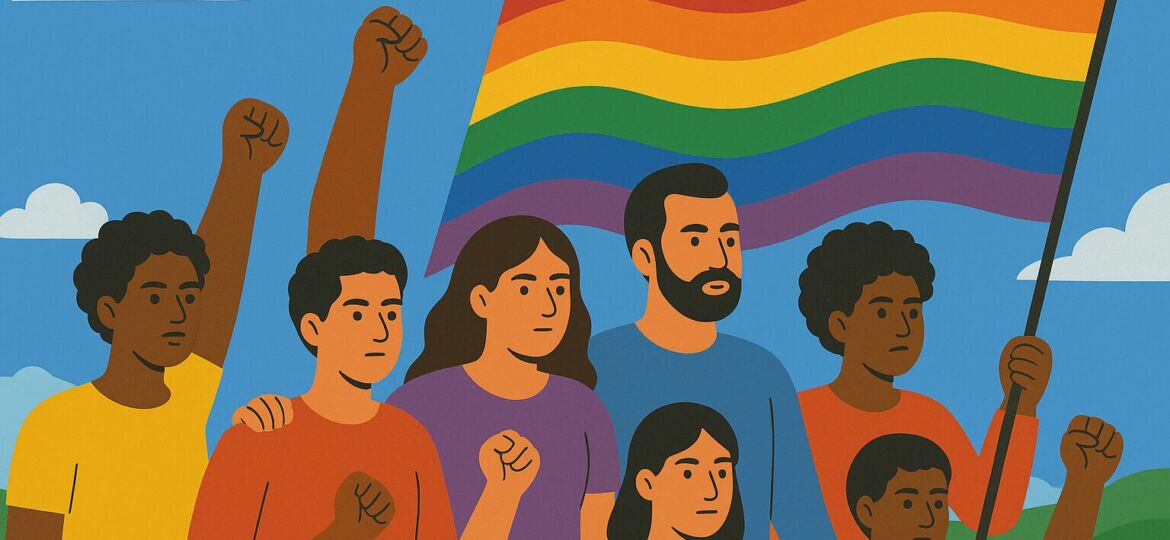
The adoption of Uganda’s 2023 Anti-Homosexuality Act marked a watershed moment for LGBTIQ+ rights in Africa. Although Uganda’s Constitutional Court struck down selected provisions in 2024, the core content of the Act, criminalisation, life imprisonment for consensual same-sex acts, and the death penalty for so-called “aggravated homosexuality”remains intact. As noted in our previous article, Uganda’s law also directly targets civil society, banning “promotion” of homosexuality and heavily penalising advocacy.
While Uganda attracted significant global scrutiny, developments across the continent reveal that it is far from an isolated case. Since 2023, several African governments have proposed or enacted new legislation that exacerbates criminalisation, curtails civic space, and emboldens anti-LGBTIQ+ sentiment.
Across the continent, several countries have moved toward harsher criminalisation of LGBTIQ+ people since 2023. In Ghana, Parliament revived the Human Sexual Rights and Ghanaian Family Values Bill in March 2025, after it briefly lapsed earlier in the year. The bill, which criminalises LGBTIQ+ identity, perceived affiliation, and any form of support or advocacy, enjoys strong political backing and if adopted, it would become one of Africa’s most repressive anti-LGBTIQ+ laws. Similarly in Mali the Transitional National Council passed legislation in October 2024 criminalising homosexuality and its “promotion.” This move has already fuelled a surge in abuses against individuals perceived as LGBTIQ+, compounding an atmosphere of repression under military rule and leaving civil society with even less room to operate. Liberia is also considering a bill that would criminalise any form of LGBTIQ+ advocacy or outreach, while in Kenya, the still-pending Family Protection Bill (2023) proposes sweeping bans on homosexuality, cross-gender expression, LGBTIQ+ gatherings, and advocacy. By denying LGBTIQ+ asylum-seekers refugee protection, the bill would also undermine basic rights to safety, privacy, and access to essential health information.
A Regional Context Marked by Widespread Hostility
According to Afrobarometer’s 2024 survey across 39 African countries, acceptance of homosexuality remains extremely low. While Africans demonstrate high tolerance for individuals of different ethnic, religious, political, or national backgrounds, nearly three quarters (74%) say they would “dislike having homosexuals as neighbours.”
Anti-LGBTIQ+ protests have mobilised thousands in countries like Senegal and Kenya, while civic and human-rights organisations face intensifying repression. Reports include refusal to register LGBTIQ+ organisations, surveillance, intimidation, arbitrary arrests, and the suppression of peaceful assembly. Even where organisations are legally recognised, governments frequently restrict media and cultural representation, banning films, books, and public events with LGBTIQ+ content.
Health, HIV, and the Harsh Impact of “Lawfare”
Some LGBTIQ+ organisations have gained visibility through HIV/AIDS work, improving access to healthcare for key populations. Yet these limited gains have not translated into broader legal protection.
Worse, punitive laws exacerbate HIV vulnerabilities by reinforcing stigma, discouraging people from seeking care, and increasing the risk of arrest in healthcare settings.
A Growing Pattern: Weaponisation of the Law
Amnesty International’s 2023 analysis highlights a worrying trend they call homophobic lawfare, the strategic use of legal systems to marginalise and terrorise LGBTIQ+ people.
With 31 African countries still criminalising consensual same-sex relations, new legislation often builds on colonial-era laws, adding harsher penalties and broader prohibitions. This deliberate use of the law as a tool of social control heightens vulnerability and normalises discrimination. In some contexts, the death penalty remains a looming threat.
Post-2023 developments reveal a continent at a crossroads. While a few countries maintain or restore decriminalisation, many more are intensifying repression through punitive legislation, civic restrictions, and state-endorsed hostility.
The consequences are profound: constrained advocacy, rising violence, health setbacks, and the entrenchment of stigma.
The trajectory of LGBTIQ+ rights in Africa will depend on whether governments choose repression, or protection and dignity for all.


